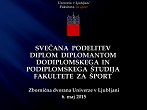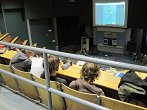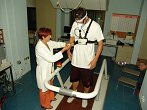STOP (H2020) Science and Technology in childhood Obesity Policy (Acronym: STOP)
- Koda H2020 -774548 — STOP Call: H2020-SFS-2016-2017
- Datum 01.06.2018 - 31.05.2022
- Organizacija Koordinator: Imperial College of London
- Nosilec prof. dr. Gregor Starc
PovzetekThe STOP project aims at expanding and consolidating the multi-disciplinary evidence base upon which effective and sustainable policies can be built to prevent and manage childhood obesity. STOP also aims at creating the conditions for evidence to translate into policy and for policy to translate into impacts. Over a four-year period (2018-22), the project will generate scientifically sound and policy-relevant evidence on the factors that have contributed to the spread of childhood obesity in European Countries and on the effects of alternative policy options available to address the problem. This evidence will complement, systematise and partly reframe the findings of an established body of prior research by leveraging the latest scientific findings. The STOP project will translate the evidence gathered and generated into: a. A comprehensive set of indicators and a measurement framework for the regular monitoring of relevant dimensions of childhood obesity, its determinants and actions to address it in all European Countries; b. Policy toolkits, providing practical guidance and tools for the design and the implementation of key policies; c. A viable multi-stakeholder framework, based on effective communication and negotiation approaches, a sound use of the existing evidence base, and appropriate mechanisms for setting targets, monitoring progress and evaluating actions. In line with the WHO Commission on Ending Childhood Obesity (ECHO), STOP will adopt a life course and intergenerational perspective, assessing the role of determinants of childhood obesity before birth and in the earliest years of life, as well as the role of parenting and parental lifestyles, and the long-term links between childhood obesity, adult obesity and disease throughout the life course. STOP will also emphasise the environmental dimension of childhood obesity, recognising the role of different environments surrounding children as major contributors to obesity, and the diverse characterisations of obesity, including those associated with the most detrimental outcomes in vulnerable and socially disadvantaged children. A key aim of the project is to bring together major health and food sector actors, including scientists, health professionals, government policy makers, national public health agencies, international organisations, civil society and business organisations and establish mechanisms through which evidence can be generated, made available and used in the design and implementation of effective and sustainable solutions for the childhood obesity problem at the EU, National and local levels. Therefore, the project will adopt a trans-disciplinary, multi-stakeholder and multi-sectoral (whole-of-government) approach, in a “Health-in-all-policies” framework. In the pursuit of the above goals, the project will benefit from the support and contributions of partners from non-European countries, who will complement the expertise of European partners and share valuable experiences in addressing childhood obesity.






































.png)